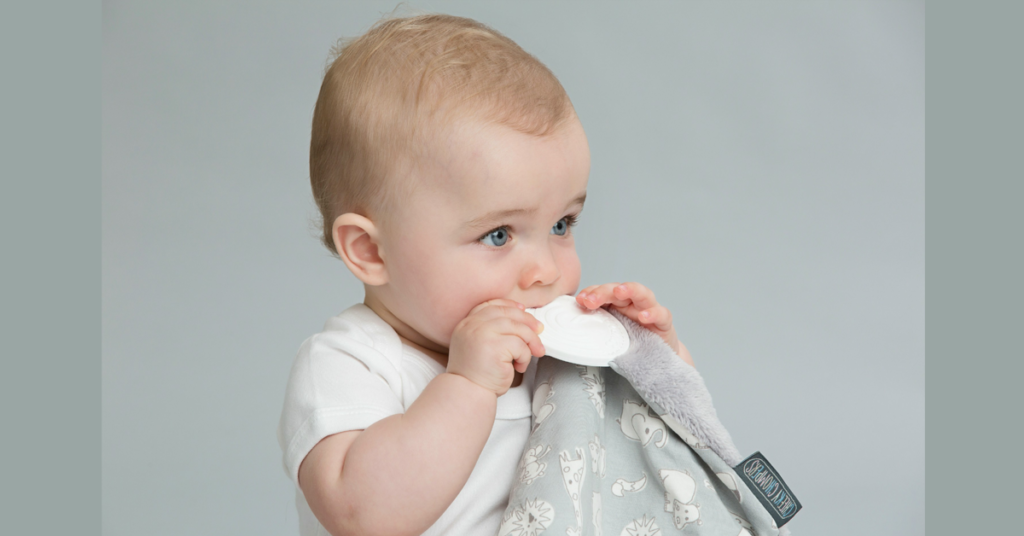Baby Teething Symptoms and Remedies
Welcome to our blog post on baby teething symptoms and remedies! As a new parent, it’s natural to have questions and concerns about your little one’s teething process. In this guide, we’ll explore the common symptoms of teething and give you some tried and tested remedies to help ease your baby’s discomfort. Let’s dive in!
Understanding the process of teething
Teething is a natural and important milestone in your baby’s development. It usually starts around 6 months of age, although it can vary from one baby to another. During this process, your baby’s first set of teeth, also known as primary teeth or baby teeth, begin to erupt through the gums.
Common Symptoms of Teething:
Although every child is unique and may experience teething differently, there are some common symptoms to look out for:
- Irritability and fussiness: Your baby may be more irritable than usual and may cry more often.
Carelessness: Excessive carelessness is a common symptom of teething. Keep a bib handy to keep your baby dry. - Gum swelling and sensitivity: You may notice redness and swelling in your baby’s gums, and they may be more sensitive to touch.
- Chewing and biting: Babies often find comfort in biting and chewing things. You may find them biting your fingers, toys, or even your shoulder!
- Sleep disturbances: Sometimes teething can disrupt your baby’s sleep patterns, causing them to wake up more often during the night.
Effective Teething Remedies
Now that we’ve covered the common symptoms, let’s explore some remedies to help ease your baby’s teething pain:
- Cool teething toys: Give your child a clean, cool teething toy to chew on. Cooling can help soothe their gums. Avoid using frozen teething toys as they can be too cold and painful.
Gentle gum massage: Using a clean finger, gently massage your baby’s gums in a circular motion. It can provide temporary relief and distract them from the pain. - Cold washcloth: Wet a clean washcloth and place it in the refrigerator for a few minutes. After it cools down, give it to your baby to chew on. Texture and cooling can provide relief.
- Teething rings: Silicone or rubber rings can help your baby chew. Make sure they are free of any harmful chemicals and easy to digest.
- Teething gels: Consult your pediatrician and consider using a teething gel made specifically for children. These gels often contain a mild anesthetic to numb the gums temporarily.
Additional Tips for Comfort
In addition to the remedies mentioned above, here are some additional tips to help keep your child comfortable during the teething process:
- Keep it clean: Clean your baby’s chin and mouth frequently to prevent excessive irritation.
- Distractions: Engage your child in activities and playtime to distract him from the pain.
- Comforting Cuddling: Offer extra cuddles and reassurance to make your baby feel loved and safe.
- Patience: Remember that teething is a temporary phase. Be patient with your toddler as they go through this milestone.
When to consult a pediatrician
Although teething is a normal part of your baby’s development, it’s important to know when to seek medical advice. Consult your pediatrician if:
- Teething symptoms can be severe and cause your baby a lot of trouble.
- You have any unusual symptoms such as a high fever, diarrhea, or rash.
- Your baby is not gaining weight or is refusing to eat.
Conclusion
Teething can be a difficult time for both children and parents, but with the right knowledge and treatment, you can help ease your little one’s discomfort. Remember to be patient, offer lots of love and comfort, and consult your pediatrician if you have any concerns. This too shall pass, and soon your baby will have a beautiful set of teeth to show off!
Also Read About:



Pingback: Babies Bedtime Routine - Medicinefiles
Pingback: Parenting Advice and Tips | Challenges of Parenthood - Medicinefiles